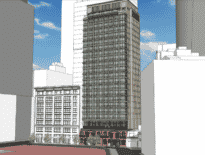Federal Reserve officials are signaling that they will take an aggressive approach to fighting high inflation in the coming months – actions that will make borrowing sharply more expensive for consumers and businesses and heighten risks to the economy.
In minutes from their March policy meeting released Wednesday, Fed officials said that half-point interest rate hikes, rather than traditional quarter-point increases, “could be appropriate” multiple times this year.
Many of the Fed’s policymakers favored a half-point increase at last month’s meeting, but held off because of the uncertainties created by Russia’s invasion of Ukraine. Instead, the Fed raised its key short-term rate by a quarter-point and signaled that it planned to continue raising rates well into next year.
The minutes said the Fed is also moving toward rapidly shrinking its huge $9 trillion stockpile of bonds in the coming months, a move that would contribute to higher borrowing costs. The policymakers said they would likely cut those holdings by about $95 billion a month – nearly double the pace they implemented five years ago, when they last shrank their balance sheet.
The plan to quickly draw down bond holdings marks the latest move by Fed officials to accelerate their inflation-fighting efforts. Prices are surging at the fastest pace in four decades, and officials have expressed increasing concern about inflation.
The Fed’s plans “reflect their great discomfort with the rapid pace of inflation,” said Kathy Bostjancic, chief U.S. financial economist at Oxford Economics.
The Fed is “increasingly worried” that consumers and businesses will start expecting price surges to persist, Bostjancic added, a trend that can itself prolong high inflation.
Many economists have said they worry the Fed has waited too long to start raising rates and could be forced to respond so aggressively as to trigger a recession. Indeed, economists at Deutsche Bank predict that the economy will tumble into a recession late next year, noting that the Fed, “finding itself now well behind the curve, has given clear signals that it is shifting to a more aggressive tightening mode.”









